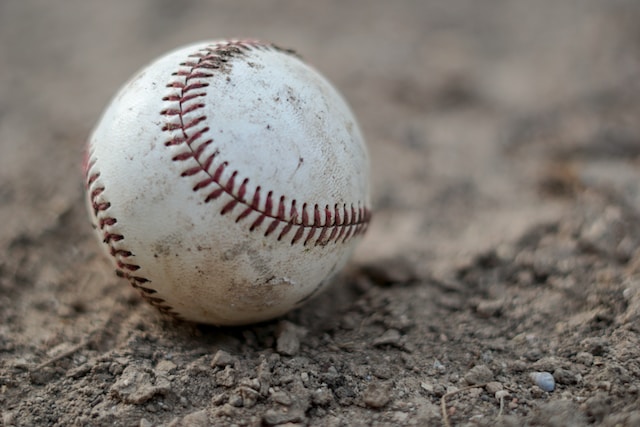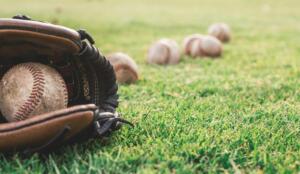The first baseman plays a unique and vital role in baseball, serving as the initial line of defense for the infield. To excel in this position, you must possess a diverse skill set that encompasses defensive prowess, offensive contributions, and exceptional athleticism.
When no runner occupies first base or after a batter reaches base, the first baseman strategically positions themselves to the right of the first-base bag and towards the back of the infield dirt. Their responsibilities extend beyond fielding ground balls within their reach, as they also catch throws from other infielders to force runners out at first base. This often requires adeptly “scooping” one-hop throws or skillfully picking low throws out of the dirt. Let’s look at the skills that successful first baseman possess.
Defensive Excellence
At the heart of the first baseman’s role lies their defensive capabilities. They are responsible for fielding ground balls, catching throws from teammates, and making quick, accurate throws themselves. The first baseman’s primary objective is to prevent opposing batters from reaching base. This requires excellent reflexes, a strong arm, and the ability to make split-second decisions. Let’s take a closer look at the essential responsibilities and requisite skills for being an excellent first baseman.
Receiving Throws
The first baseman must skillfully catch throws from infielders and outfielders, often under pressure. They must be adept at stretching, scooping, and picking throws in a wide range of situations.
Fielding Ground Balls
The first baseman must be proficient in fielding ground balls hit towards them or within their reach. They should have quick reactions, a good glove, and the ability to make accurate throws to other bases.
Footwork and Positioning
Proper footwork and positioning are crucial for a first baseman. They need to be able to cover the bag efficiently, maintain balance, and anticipate plays to make quick adjustments when necessary.
Offensive Contributions
In addition to their defensive responsibilities, first basemen are expected to contribute offensively. Traditionally, first basemen are known for their power-hitting abilities, driving in runs and hitting for extra bases. However, offensive expectations can vary depending on the team’s strategy and the individual’s skill set.
Hitting Ability
First basemen often serve as offensive powerhouses in a lineup. They should possess solid hitting skills, with the ability to make contact consistently and drive the ball with power. A high batting average, good plate discipline, and the capacity to hit for extra bases are key traits.
Run Production
First basemen are often responsible for driving in runs, making their performance in clutch situations crucial. They should possess a keen understanding of the game, be able to hit with runners in scoring position and have the ability to hit home runs or sacrifice fly balls when necessary.
Plate Discipline
Patience and plate discipline are highly valued in a first baseman. They should be able to draw walks, work the count, and force opposing pitchers to throw strikes, giving their team more scoring opportunities.
Athleticism and Adaptability
Being a first baseman demands a unique blend of athleticism and adaptability. They must be agile enough to handle ground balls and make quick movements around the base. Furthermore, they should be adaptable enough to react to unexpected situations and handle various defensive shifts or positioning changes implemented by the team.
Agility and Flexibility
First basemen need to be agile and quick on their feet, as they often need to stretch or dive for balls thrown off-target. Their ability to move swiftly and adjust to various defensive scenarios is crucial to their success.
Communication and Leadership
As a key part of the infield, first basemen must effectively communicate with other infielders, guiding defensive plays and positioning when necessary. Their leadership skills play a pivotal role in the overall team coordination and defense.
Conclusion
The first baseman is an incredibly important position in baseball, serving as the initial line of defense for the infield. Their unique skill set, which combines defensive prowess, offensive contributions, and exceptional athleticism, makes them a vital asset to any team. From strategically positioning themselves on the field to skillfully fielding ground balls and catching throws, the first baseman plays a crucial role in preventing opposing batters from reaching base.
They also make significant offensive contributions, utilizing their hitting ability to drive in runs and showing plate discipline. With their agility and adaptability, they can handle various defensive scenarios and make quick adjustments as needed. Effective communication and leadership skills further enhance their impact on the team. Overall, the first baseman’s responsibilities and skills make them an invaluable part of a successful baseball team.







